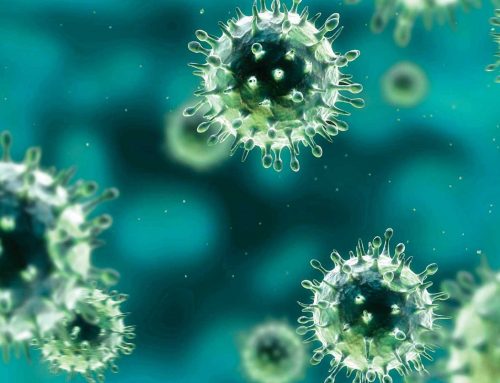Are you seeing all the advertisements for detox and cleansing kits, programs, and products?
Like this post? Sign up for more nutrition information you can use at https://trufoods.substack.com
Sugar Games
Big food corporations will have you believing that sugar is healthy. Even the Academy of Nutrition and Dietetics has ties to the big food industry and thus supports food products that are not healthy. It is sad to see because it comes down to who you trust when making food decisions.
Sugar deception
Deception in the health industry has existed for a long time going back to the early 1900s. There is not much profit in supporting a healthy body, but there is profit in sick people. Look all around you; odds are most people you talk to have at least one chronic health condition and are on at least one medication.
Case example
I remember a previous client with three heart bypass surgeries, CVD, HTN, and type 2 diabetes. His main concern was the painful neuropathy keeping him up at night.
Slowly, his health improved with dietary changes, and his neuropathy was almost eliminated. But when he saw his doctor, his doctor said he did not need to follow the diet I am recommending and that he could see their onsite RD. The doctor (according to the client) instead told him that he could go back to stopping at DQ every night on his way home from work and could continue to have a glass or two or three…of wine at night because the doctor would increase the metformin dose and switch it from once per day to twice per day.
Why would the client discontinue dietary help when it was working? Simple. He had not created the new routine and habits yet, and it was much easier to take an extra pill daily and return to his old habits.
Why would a doctor support increasing the amount of sugar and refined food in the diet if he was improving under the guidance of a nutrition professional?
Why would the doctor not encourage sticking to the new dietary regimen if his neuropathy improved?
I know the answer, and I am sure you do too, but you need to examine your patient-doctor relationship to ensure they have your health or something else as their primary interest.
We have known since the 1950s that sugar is linked to heart disease and inflammation, but paid research by Harvard scientists refuted this notion, claiming that fat, not sugar was the problem. These Harvard researchers made some scary health recommendations, such as:
- add sugar to your coffee three or four times per day as a quick source of energy
- drink coke as a healthy snack (something even the Academy of Nutrition and Dietetics has supported in recent years)
- food additives are good for you
- refined and enriched foods are just as healthy as whole foods
You may laugh at these ridiculous health suggestions, but the sugar deception continues, often with beneficial information left out of a study.
Sadly, even in research, there is corruption, and many published studies are written with a slant to support a big industry rather than the individual.
Hidden sugar
Sugar is everywhere, and it is in your fancy coffee drink, cereal, and fast food french fries. Processed carbs will convert to sugar in the bloodstream. Thus, don’t be fooled by thinking a bag of chips or crackers is a safer option.
Why sugar is unhealthy
Natural sugar sources can be part of a healthy diet, such as starchy vegetables and fruits. When removing sugar from the diet, you can add small amounts of raisins, dates, or figs as naturally sweet treats if you are craving something sweet. Or try a piece of dark chocolate with a dab of nut butter (the no sugar added kind). Processed sugar contributes to wide systemic inflammation, type 2 diabetes, CVD, weight gain, HTN, cognitive deficits, depression, dysregulated appetite, and fatty liver disease
How long does it take to create a new dietary habit?
If you want to break the sugar habit or any other food habit, it does take time. This is the most challenging aspect of making any life change, and the pattern will become routine if you can move through the difficult phase.
I remember when I first committed to a paleo challenge when the paleo diet became popular probably 13 or more years ago. I thought the challenge was for 4 weeks, so how hard can that be? I can go back to my old diet afterward. Two weeks in, I was struggling, and I kept telling myself only 2 more weeks. Then I looked at the whiteboard in my CF gym and realized that the challenge I signed up for (and paid for) was for 8 weeks, not 4!
But something happened right around week 6. I forgot about my diet. Instead of reading labels and thinking of what I could and could not eat, I stopped thinking about my diet. This is because it was becoming routine for me.
For some people, it takes you to stick to a new behavioral change for up to 6 months. This is why it is best to keep changes small that you can build upon. For instance, it is much easier to say, “over the next 6 months, I will reduce my daily soda consumption by one ounce,” versus “starting tomorrow, I am going not to drink any soda or sweetened beverages.”
See the difference? The first one may take longer, but you may create a new habit. The second one may work for a week or two until you have a stressful day or go to a special event and decide to break your new routine.
Create concrete goals for yourself. Removing refined foods from the diet may help you achieve your goal rather than saying you will lose 20 pounds.
Do not buy into the marketing that sugar is a healthy snack, and it is not. Once you have created new habits, you can add sugar in from time to time, as by this point, it will be easier to have a sweet treat and return to your regular habits.
But give it time, and you will get there.
Bottom line
If your diet consists of 80% or more processed food, proceed slowly, as once you eliminate these foods, you may feel crummy with headaches, fatigue, and cravings. The slower you make changes, the fewer withdrawal effects you will have. Once you get through this phase, you may have more energy, weight loss, focus, and motivation.
If you need nutrition support, contact me to see if my services are a good fit for you. karen@trufoodsnutrition.com
Sources
Endurance News. (2022, Dec.). Sugargate Revisited. https://hammernutrition.com/blogs/endurance-news-weekly/sugargate-revisited
Gladd, J. (2022). Overcoming barriers to treatment adherence. Element by Emerson ecologies; issue #4.



